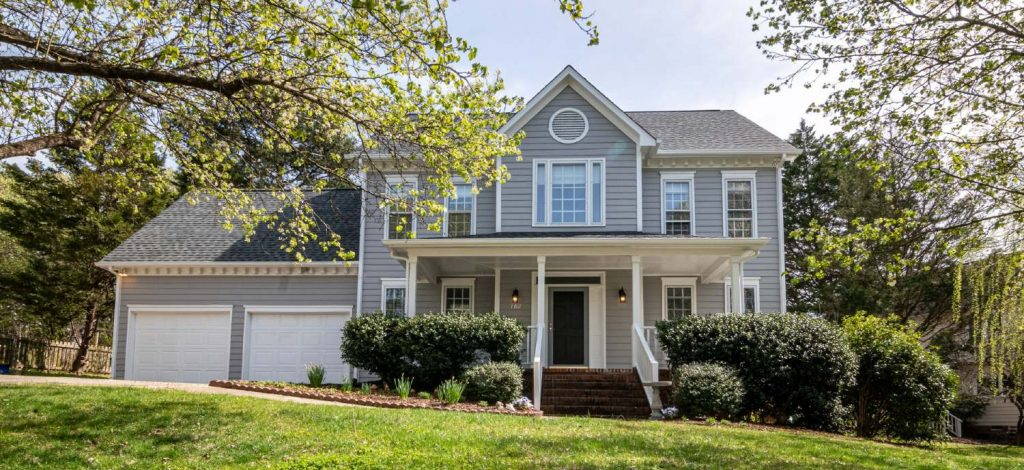Table of Contents
Real estate has always been a relatively safe method of wealth-building for investors, and even in today’s world, no investment strategy has withstood the test of time quite as well as real estate. What’s more, many real estate entrepreneurs manage to work less but earn more than their peers in other solid industries simply by buying, renovating, and reselling properties. There are many other significant benefits to flipping houses, and it can be a great career choice for the right person.
However, the real estate market that is emerging this year is much different from the market we saw at this same time last year. The outbreak of COVID-19 has caused serious disruption in the real estate industry, and it’s difficult to say when exactly markets will recover. If you still plan to flip houses as a career in 2020 and beyond, you should make sure your business plan reflects this reality and adjust your strategy going forward accordingly.
This is what you need to know about flipping houses as a career, and the steps you’ll need to take to be successful even in today’s market:
Structuring Your Flipping Business
Whether you are planning to flip houses by yourself or planning to work with a partner, your first step out of the gate should be to structure your business legally. Investing in real estate comes with a lot of risks, and without a business structure in place, you are exposing yourself to liability that could affect your other personal assets. All it takes to avoid this is setting up some simple legal documents that will protect your business – a particularly important step when facing today’s less-than-sure investment environment.
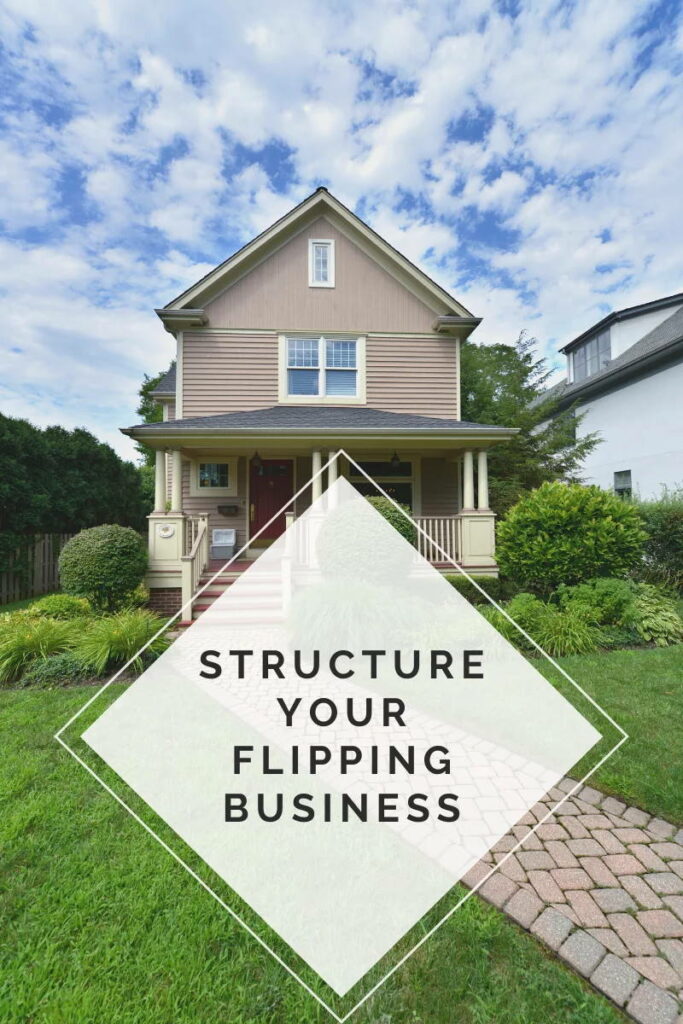
There are multiple legal structures that are suited to flipping houses as a business: S corporations, C corporations, Limited Liability Partnerships, or, the most common for single-owned businesses, a Limited Liability Company. LLC’s are a popular option as structuring one can be done online or with some assistance from an attorney, while S and C corps may be more suited to larger-scale real estate investments made with funds gathered from a group of investors.
As a less experienced property investor and flipper, teaming up with someone that has done this before can help you avoid some of the common pitfalls that come with the flipping process.
The other benefit of working with a partner is that there is more capital available to go around, and the associated risks are divided equally between multiple individuals. So is the accountability that is key to keeping your project on track. Structuring your business legally is also a long-term plan since it’s easier to grow with the structure than it is to go back and try to incorporate later down the line.
Finding Properties To Flip
The best real estate deals involve purchasing a property in a sought-after area that is being sold below its general market value, renovating it, and reselling it a few months later for a profit. If you’re a newer real estate investor, it can be difficult to know where to start when looking for a property to acquire. More experienced flippers make use of multiple different sources for finding property deals, like relying on their personal network, canvassing properties via direct mail, or looking out for property auctions.
Foreclosure auctions are one of the top recommended deal-finding options, taking place when an individual fails to pay their mortgage payments on a property for an extended period of time, resulting in the auction of the property by the lender to make up the cost. For real estate investors, these properties can be a great starting point investment-wise at a significantly lower price, as the lenders holding these properties will want to get rid of them quickly. As a result, the lender could even agree to grant financial concessions that could make the property even more affordable.
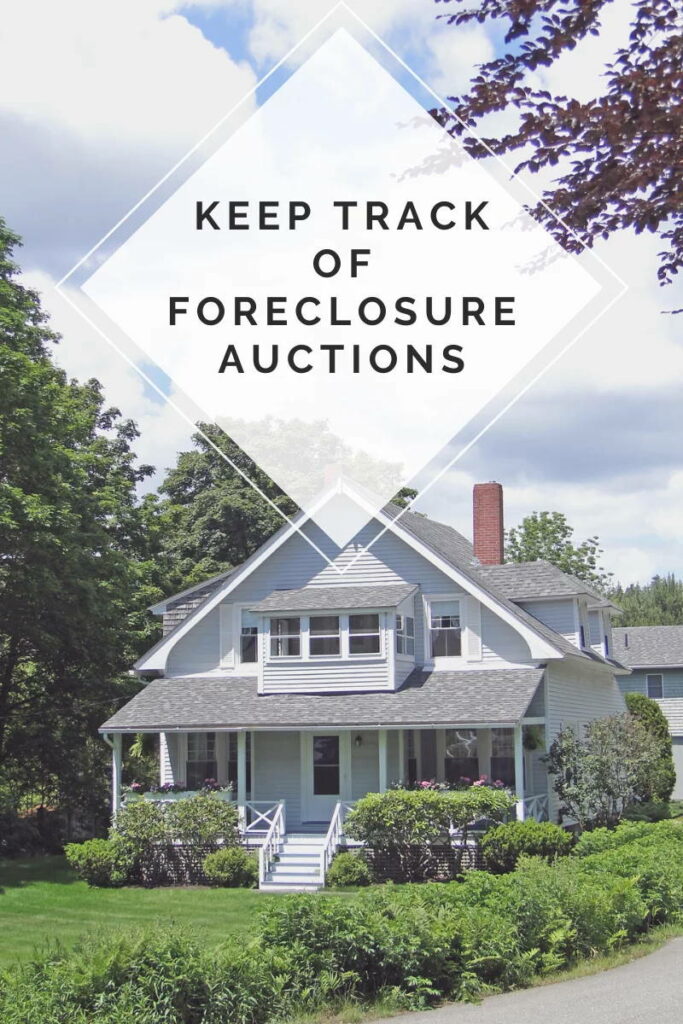
The main gamble for investors is that they might not be able to inspect the property before it is auctioned and must take the property at face value. If you’re not confident in your renovation skills, this is a big risk that could really affect how much you make from the project when all is said and done.
The economic fallout caused by the outbreak of COVID-19 could mean that many foreclosed properties will go up for sale in the next few months. You should consider this to be your opportunity to buy up cheaper property in sought-after locations that might not have come onto the market otherwise. Another factor to bear in mind is that the same factors that make for more affordable real estate right now could be the factors that affect the resale of the property later on.
The Act Of Flipping
Flipping a house is a big undertaking, but real estate entrepreneurs who are in touch with what home buyers want will have the greatest chance of successfully finding buyers. There are plenty of ways to keep your fix and flip in touch with the latest trends while remaining cost-effective – it’s all about knowing where to focus your efforts in order to achieve the maximum ROI possible and then repeating it with the next property.
Adding upgraded fixtures and features to kitchens, bathrooms, flooring, and closets will add a lot of value to the property for sellers, and, while it can lengthen the fix and flip process somewhat, reselling the property will become much easier. These are all the spaces that have most consistently ranked as most important to prospective property buyers, and you’ll want to avoid spending time and effort renovating things that won’t add any tangible value to the project. Real estate entrepreneurs can maximize their ROI potential by investing more time in the right spaces, and even smaller fixes and changes in these rooms can increase the overall property asking price.
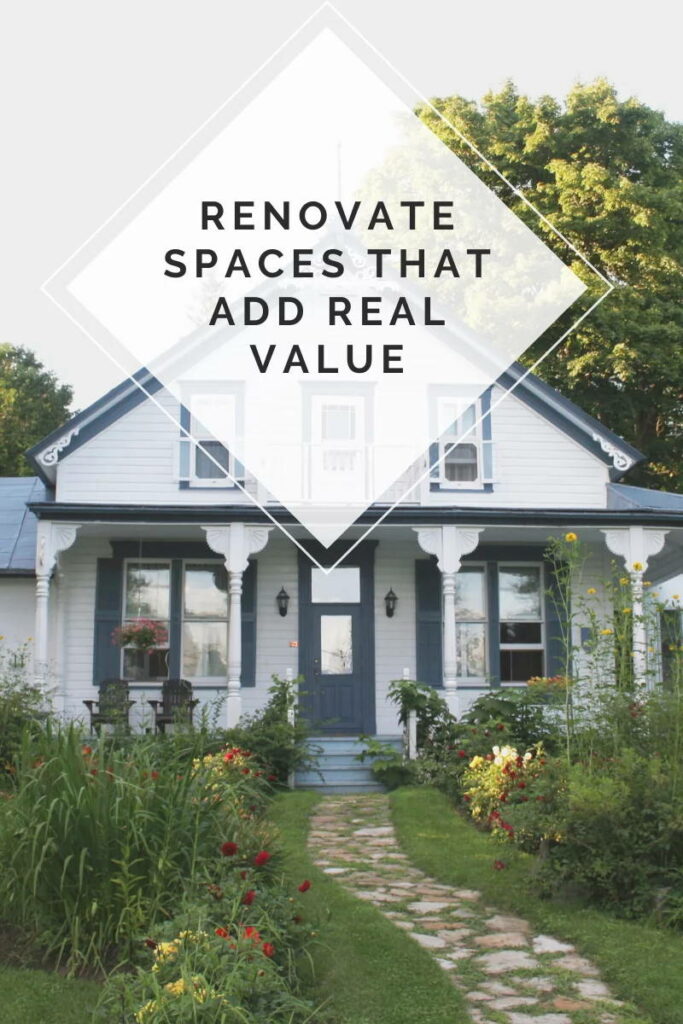
It’s also important to bear in mind that renovation projects are often straightforward on paper, but unexpected challenges come up in the course of the flip process all the time. It’s best to prepare enough wiggle room in the budget and project timeline to cover any unforeseen surprises and prevent any detrimental outcomes.
Financing Your Flips
There are many financing options available to those looking to flip houses as a career, and you should carefully consider which option is most suited to your business and property investment goals. The initial cost to acquire a fix and flip investment property will be the purchase price, which will make up the most significant portion of your overall project budget, but there will be many other costs to cover throughout the flipping process.
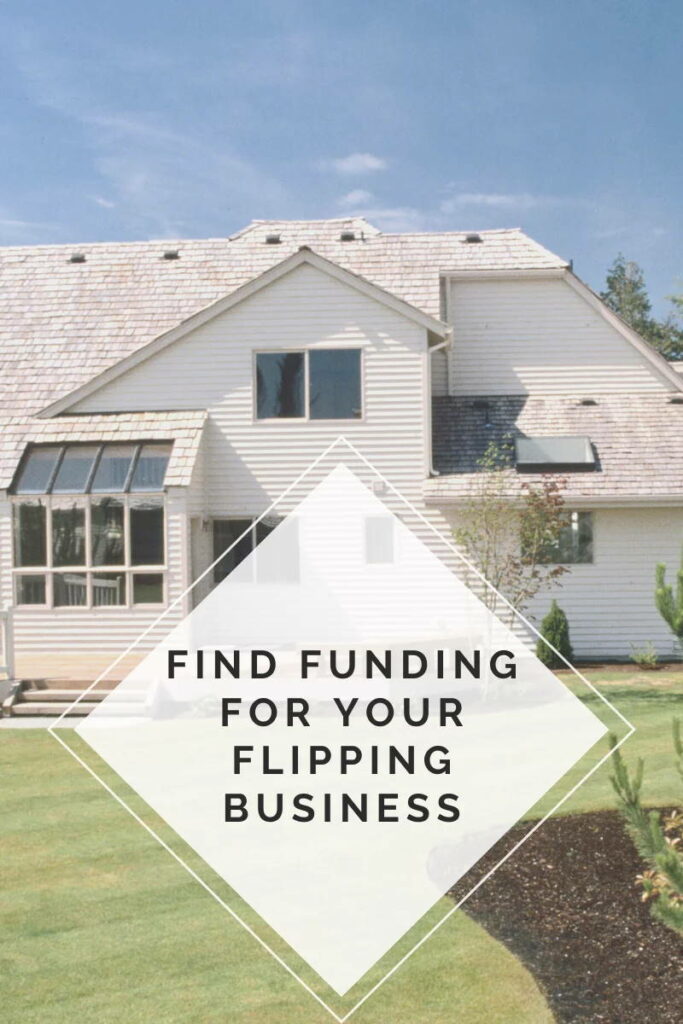
Hard money loans are one option that many fix and flip investors prefer to make use of when financing a fix and flip project. These are loans that are typically available for shorter terms, backed by the value of the borrower’s real estate. The reason for this is that loans from hard money lenders differ largely from bank loans, as the loan funds are sourced from a group of private investors who are able to offer faster approvals and underwriting processes than banks due to less strict requirements.
Another option is a real estate loan from a bank. Banks typically hold the property note until the borrower’s loan is repaid in full over longer terms, and are also more hesitant to provide funding for fix and flip projects due to the level of risk involved.
Selling Successfully
When the rehab part of the project is finished, it’s up to you to market the property and resell it as soon as possible. Until the final closing, there will be certain ongoing expenses to pay, such as utility bills, gardening or landscaping fees, and other expenses that keep the property in top shape prior to sale. The faster it is off your hands, the higher the amount you will retain as the investor.
The longer the property stays in your possession, the higher the upkeep, and managing costs will become over time and eat into the total profits you could earn. The way to balance this out is to choose the right price that will assure you of good profits and cover all of the renovation expenses. If you overprice the property, the home will be less appealing to potential buyers and cost you the initial wave of interest and offers that are so key.
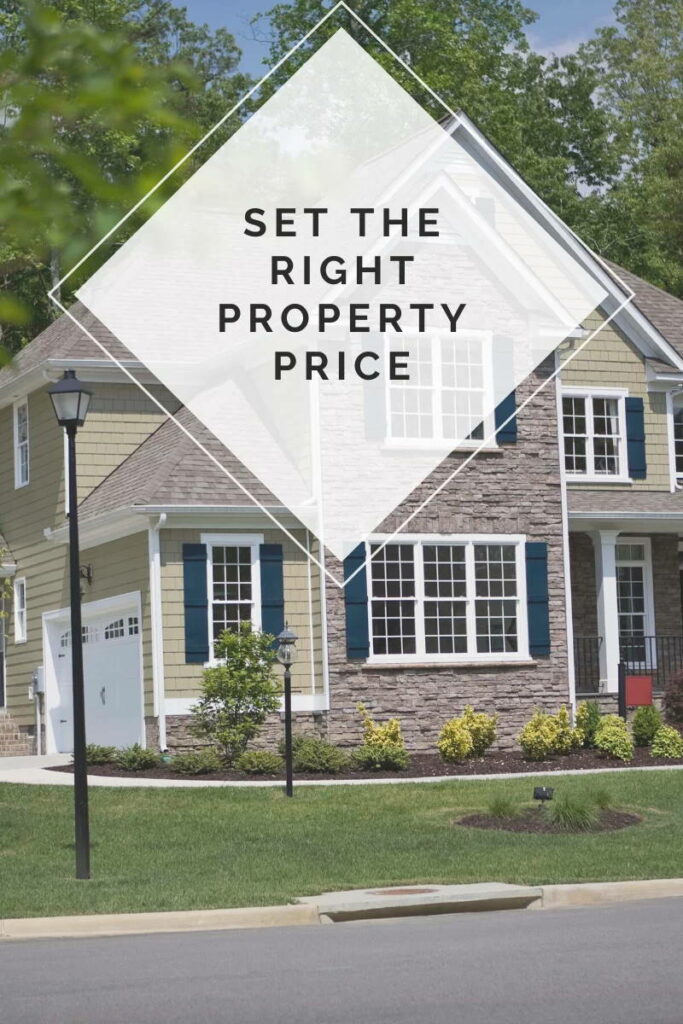
The biggest caveat to the process of selling a fix and flip property is the current economic situation. With scores of people around the country filing for unemployment, the total volume of property sales will decrease if they haven’t started to already. This can make for a good time to acquire property, but not exactly for a good seller’s market.
The reality is that not all real estate markets are guaranteed to perform well post-COVID-19 but experts predict that markets that performed well before the outbreak will do so again and that is where you want to try and invest.
Final Thoughts
Flipping houses can be a lucrative career choice if you know where to start and are not afraid of putting in some hard work. Despite facing less-than-ideal market conditions, real estate has always been a wealth-building asset class and will continue to be so long after the COVID-19 crisis has come to an end. If you start your real estate investing business in challenging circumstances, working with a partner under the umbrella of a legal business structure can help you limit your liability.
As the economy struggles to regain stability, it will be up to you to look for house flip opportunities from multiple sources, including paying attention to foreclosure auctions in your state. Be sure to include the latest real estate market performance in your house flipping business plan, and remember the factors that made for good investment locations in the past will make for good ones again in the future.
To learn more about flipping houses as a career, check out Achieving Wealth Through Real Estate: A Definitive Guide To Controlling Your Own Financial Destiny Through a Successful Real Estate Business by Kirill Bensonoff. This is your all-in-one digital pocket guide to everything you need to know about successfully investing and profiting from real estate.
Bonus Tip
You don’t necessarily have to make the transition from your current position to full-time house flipper instantly. It is perfectly reasonable to attempt your first flips while you still have a stable income, and this is probably the best way to mitigate the risks while you develop the confidence and knowledge needed to go all in.
If you find yourself in this position, one of your biggest challenges will be time. To help ease the burden, consider using a virtual assistant with real estate experience. Hiring a VA is a relatively affordable way to leverage another person’s time in order to balance the expectations of your job and the challenges of your side hustle.
Most importantly, the best thing you can do is start your journey as a real estate investor as soon as possible. The experience gained by taking action is the ultimate compliment to the knowledge and research that you have already accumulated.
FAQ
Truth be told, the answer is no. To make money flipping houses, you need to invest time, money, and huge amounts of mental energy in order to ensure that the project is a success. It’s a high-risk, high-reward real estate investment strategy that can be completed in less than 12 months or less if you know what you’re doing. However, you will need to work your butt off during each and every phase of the project’s life cycle. Don’t let anyone tell you otherwise.
With that being said, if you’re committed to generating passive income with property investing, you are more likely to be successful with BRRRR investing or more traditional buy-and-hold investing. These are longer-term strategies that can generate sustainable monthly income. Also, there is nothing preventing you from using the money generated by flipping property to help build your rental property portfolio.
In short, no. There are a variety of ways to finance a fix and flip. However, it is very common for investors to make use of a hard money lender to cover the majority of the financing costs. It’s easy to understand why. Fix and flip lenders are much more likely to approve your application, they are much faster than traditional banks, and they offer interest-only loans. In most cases, it just simplifies and accelerates the funding process.
To start flipping homes as full time job, you need to able to complete multiple flips in a single year. This is mainly because the average net profit from a flip is significantly lower than the average gross profit, which ranges from $60,000 to $74,000 over the last 3 years. In most cases, you can expect to make between $20,000 and $40,000 per flip, with $30,000 being an ambitious yet attainable target.
If you would like to know more about the numbers involved, this guide provides a detailed analysis how much money you can make through house flipping. It includes information on the average profit margin, carrying costs, and other key expenses that you are likely to encounter during a fix and flip project.
